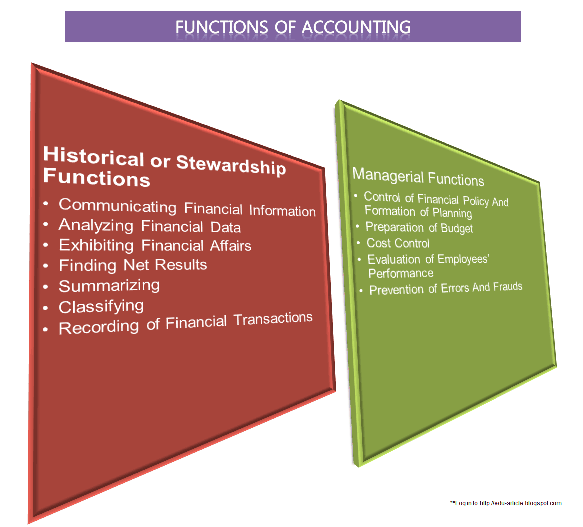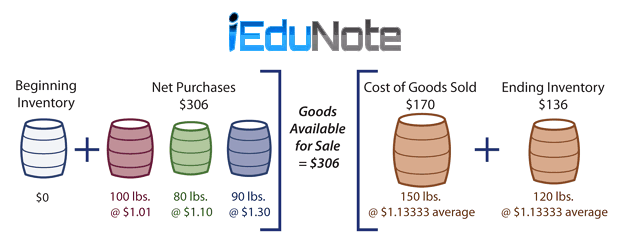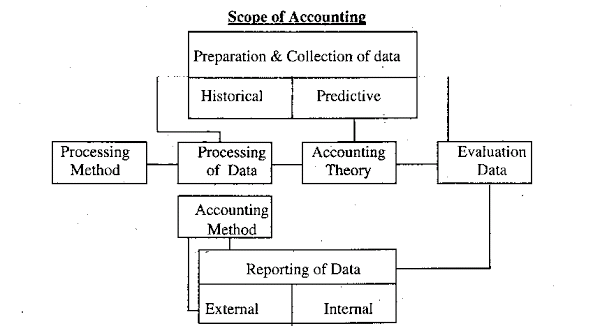Functions of accounting are related to those statements which provide information of economic entity mainly measurable regarding money that will be used in deciding for the plan of action from various alternatives.
Functions of Accounting are; control of financial policy, and formation of planning, preparation of the budget, cost control, evaluation of employees’ performance, Prevention of errors and frauds.

Therefore, from this view and general activities of Accounting;
It is clear that the functions of Accounting are
- identification,
- recording,
- classification and
- summarization of transactions
- ascertainment of results
- exhibition of the financial position of an organization
- communication of necessary information derived from an interpretation
- analysis of the interested parties, including the management.
Carter in his Advanced Accounts has also divided the functions of Accounting into two parts –
- permanent recording of financial transactions of a business,
- exhibiting the financial impact of each transaction or collective transactions over the financial position of interested parties.
Yorston, Smyth, and Brown have divided functions of Accounting in two groups;
- Historical or stewardship functions and
- Managerial functions. These are listed below;
5 Managerial Functions of Accounting
The management is to make various decisions for the smooth running of the business. The evaluation of past activities takes these decisions.
Accounting provides reports of past financial activities that are made suitable for decision-making through analysis.
These activities of Accounting are regarded as managerial functions.
Five Managerial Functions of Accounting are;
- Control of financial policy and formation of planning.
- Preparation of budget.
- Cost control.
- Evaluation of employees’ performance.
- Prevention of errors and frauds.
Control of financial policy and formation of a planning
Various financial information is presented before the management so that the management can control financial policies and formulates planning regarding future activities and course of action.
Preparation of budget
The preparation of estimated statements of income and expenditure based on future activities is also one of the important managerial functions.
Accounting provides the necessary financial information required for the preparation of this budget. Later on, executed activities are compared with budgetary elements.
Cost control
A standard cost is estimated ahead of each cost. For this purpose, the necessary financial information is available from accounting records.
Actual cost and standard cost are compared for evaluating the efficiency of work. In this way, cost control is possible.
Evaluation of employees’ performance
Assigned tasks of employees of every department of an organization are to be evaluated. For this, Accounting provides the necessary information.
Prevention of errors and frauds
Through the accounting system, the activities of employees are checked to prevent errors and fraud.
Seven Historical or Stewardship Functions of Accounting
AccAn accountant generally regarded as a steward of all economic activities of a business concern.
As a steward, he is supposed to be responsible for all economic activities of a business concern.
For discharging his responsibilities, he keeps accurate accounts of all financial transactions of his business, and these are regarded as stewardship functions of accounting.
Stewardship functions of accounting are;
- Recording of financial transactions.
- Classifying.
- Summarizing.
- Finding net results.
- Exhibiting financial affairs.
- Analyzing financial data.
- Communicating financial information.
Recording of financial transactions
The primary function of Accounting is to record the transactions in the journal as soon as they occur.
If the transactions are journalized, it becomes easier to transfer them in ledger accounts.
Classifying
After journalizing the transactions, these are classified and recorded in the ledger separately.
Summarizing
After recording the transactions in the ledger, these are closed by drawing balances.
A brief statement is prepared with the balances of the ledger, which is called a trial balance.
Finding net results
The main function of Accounting is not only to record the transactions in books of accounts but also to determine the net results of a business for a particular period at the end of that period.
The income statement is prepared with the help of revenue incomes and expenses mentioned as ledger balances in the trial balance to find out the operating results of a business organization for a particular period.
So preparation of income statement is treated as one of the important functions of Accounting.
Exhibiting financial affairs
Preparation of balance sheet is one of the functions of the special importance of Accounting. The balance sheet is prepared to exhibit the financial position of an organization at a particular date.
A picture of assets and liabilities is reflected in the balance sheet, and a clear conception can be achieved regarding the financial stability of an organization through it.
Analyzing financial data
The financial data derived from financial statements are interpreted and analyzed for different purposes.
From this information, a clear conception is achieved regarding the capability of repayment of debts, the capability of earning a profit, work efficiency and transparency, etc. of an organization.
This can be ascertained through ratio- analysis.
For example, the debt-paying capability is measured by the current ratio.
Communicating financial information
Interested parties related to the business organization such as owners, employees, suppliers, investors, researchers, government, etc. remain eager to know various details regarding the financial positions of that organization.
One of the primary functions of Accounting is to provide them with information regularly through various reports.
Conclusion
Accounting is concerned with the quantitative expression of economic phenomena. As a discipline, it evolved from a need for a framework for recording, classifying, and communicating economic data. According to this study, the function of accounting is:
- To measure the resources held by specific entities.
- To reflect the claims against and the interests in those entities.
- To measure the changes in those resources, claims, and interests.
- To assign the changes to a specifiable period.
- To express the preceding in terms of money as a common denominator.
The function and purposes of accounting are accomplished at two levels.
One is the recording function, which is that part of the discipline that governs the mechanics of recording and summarizing the multitude of transactions and economic events that occur in an enterprise, and that can be quantified in terms of money.
The other level, a more complex one and more subject to individual judgment and opinion, governs the methods, procedures, and principles by which accounting data are measured and presented.

